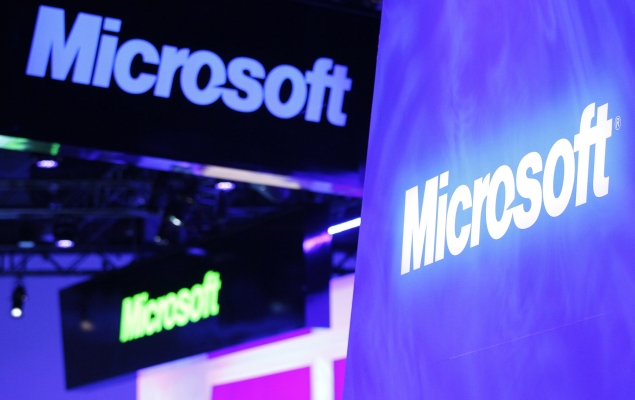Google's Motorola ordered to pay $14 million in damages to Microsoft
Advertisement

Microsoft Corp said on Wednesday a jury decided in its favor in the second of two trials in federal court in Seattle concerning Motorola Mobility's licensing of so-called standard, essential patents used in Microsoft products.
The jury agreed with Microsoft's claim that phone maker Motorola, owned by Google Inc, broke agreements with standard-setting bodies to license certain patents at a fair and reasonable rate, according to Microsoft.
The jury awarded Microsoft about $14 million in damages, Microsoft said, about half what the company had asked for. That consisted of $11 million for the costs of relocating a warehouse in Germany due to an injunction on certain Microsoft products brought by Motorola in that country, and about $3 million in legal fees for fighting that injunction.
"This is a landmark win for all who want products that are affordable and work well together," Microsoft said in a statement.
A Motorola spokesman indicated the company would appeal.
Advertisement
"We're disappointed in this outcome, but look forward to an appeal of the new legal issues raised in this case," said William Moss at Motorola. "In the meantime, we'll focus on building great products that people love."
The victory for Microsoft follows a decision in its favor in another, related Seattle trial last year in which the judge found that the appropriate rate for Motorola to license certain wireless and video technology used in the Xbox game console was only a fraction of what Motorola had asked for.
Advertisement
In that trial, U.S. District Judge James Robart said the appropriate rate was about $1.8 million, slightly above Microsoft's estimate, but well below Motorola's demand for as much as $4 billion a year.
In the latest trial, Microsoft argued that Motorola's initial demand was exorbitant and a clear breach of its agreement to charge reasonable and non-discriminatory terms - commonly referred to as 'RAND' - for technology that is an industry standard.
Advertisement
The long-running argument between Microsoft and Motorola - and by extension Google - is just one facet of a wide-ranging global patent war surrounding smartphone and internet technology that has drawn in Apple Inc, Samsung Electronics Co Ltd, Nokia and others.
At heart, the companies are arguing over who owns the technology and design features behind smartphones, which are now essentially small computers.
More particularly, Microsoft has been locked in a battle with Google to ensure that handset makers using Google's free Android phone operating system pay Microsoft a license fee. Most large handset makers, such as Samsung, LG and HTC, have agreed to pay Microsoft a royalty on Android handsets that Microsoft believes may infringe on its patents. Motorola, which was bought by Google last year for $12.5 billion, partly because of its trove of patents, is the last big holdout.
The case in U.S. District Court, Western District of Washington is Microsoft Corp. vs. Motorola Inc., 10-cv-1823.
© Thomson Reuters 2013
For the latest tech news and reviews, follow Gadgets 360 on X, Facebook, WhatsApp, Threads and Google News. For the latest videos on gadgets and tech, subscribe to our YouTube channel. If you want to know everything about top influencers, follow our in-house Who'sThat360 on Instagram and YouTube.
Advertisement
